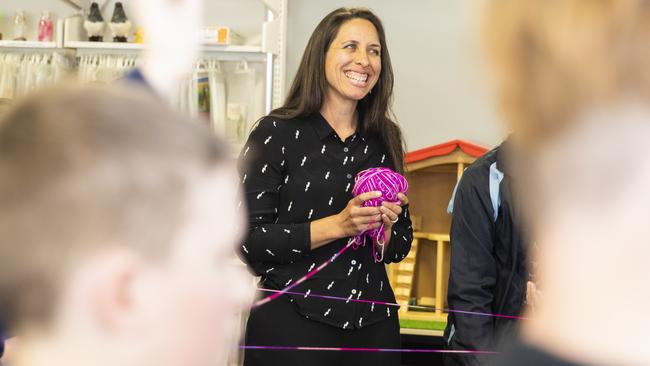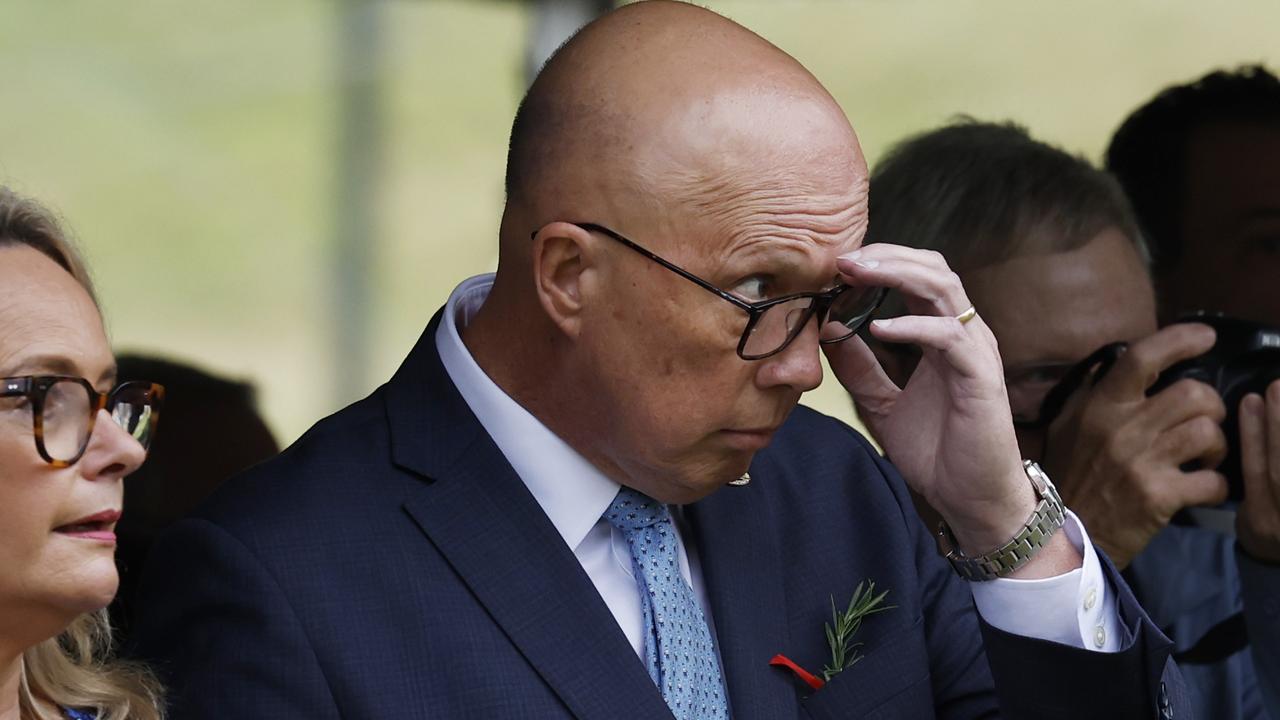Talking Point: We don’t need to fail our children
LEANNE MCLEAN: Growing number of Tassie children are failing to meet development checks and more live in out-of-home care, but there are solutions

Opinion
Don't miss out on the headlines from Opinion. Followed categories will be added to My News.
THE wellbeing of Tasmania’s children and young people is paramount for the future prosperity of all Tasmanians.
Wellbeing is when people feel happy, healthy, capable and able to have a good life. It is the quality of people’s lives.
In Tasmania we have defined good wellbeing for our children as when they feel loved and safe, are learning, healthy, have access to material basics like housing and clothing, are participating and are connected to their culture and community. These are the six domains of the State Government’s Tasmanian Child and Youth Wellbeing Framework.
Over the past year and more, I’ve had the pleasure of talking to many children and young people, and those who support them, about how they’re going.
The message is loud and clear, and is supported by the publicly available data: We must do better at promoting and improving the wellbeing of all of our children and young people. Not only because by doing so are we promoting their enjoyment of their human rights, but because we owe it to them to support them to grow to be happy, healthy, productive adults. We also ensure Tasmania can prosper into the future.
Young people have told me their concerns about education and their future opportunities. They have underscored their need for access to basic services and support. They have called attention to issues of safety, their mental health and the bullying they experience. They have stressed their desire to participate fully in their communities and society, including being engaged in decisions about their futures.
Young people have also highlighted the sometimes overwhelming impact that climate change is already having and will have on their wellbeing and future opportunities.
The empirical data tells another, not dissimilar story: Despite our best efforts over some time, many wellbeing outcomes of children and young people in Tasmania have remained stagnant or worsened. For example:
A 37 PER CENT INCREASE in the number of children and young people in out-of-home care in Tasmania since 2011.
YOUTH UNEMPLOYMENT for 15 to 24-year olds (2019) is 14 per cent and has not changed since 2012.
CHILDREN AND YOUNG PEOPLE (0 to 24) who report having a mental or behavioural condition has increased from 10.6 per cent 2012 to 18.8 per cent in 2018.
THE PROPORTION of children meeting all 21 markers on the Kindergarten Development Check has declined year on year from 74.5 per cent in 2013 to 67.8 per cent in 2018.
THE PROPORTION of school leavers aged 15 to 24 who are fully engaging in education, training and employment is 48.1 per cent in 2019, compared to 74.6 per cent in 2015.
These figures are sobering. It’s clearly time for a new way forward, where we think differently about wellbeing, invest differently and measure our progress to make sure we are on the right track.
I have released a report, “Investing in the Wellbeing of Tasmania’s Children and Young People”, which proposes improving the wellbeing of children and young people by bringing it to the centre of government policy and decision-making. The report includes recommendations aimed at overcoming some of the factors that have hampered our efforts to improve the wellbeing of children and young people.
For example, despite currently having an agreed definition of children and young people’s wellbeing, we do not have an overall vision or whole-of-government strategy for promoting and improving wellbeing of all Tasmanian children and young people. My report recommends that Tasmania develops a long-term, cross-partisan strategy to improve wellbeing, led by the Cabinet of the day. This strategy should co-ordinate efforts across departments, and monitor and analyse results. I’m also recommending that data collected for monitoring children’s wellbeing should be publicly available, simple, concise and relevant to people locally and statewide.
The evidence is already in that earlier and earlier investments, including in the first critical 1000 days of a child’s life from conception to age two, can have a large and lasting impact on a person’s wellbeing into adulthood. I’m therefore also recommending that priority actions now include providing more support in the first 1000 days, including during pregnancy, and reducing fragmentation in services.
Investing early — especially before problems become entrenched and harder and more expensive to resolve — has been shown to reduce the numbers of children needing crisis and late intervention responses, such as child protection, youth justice, mental health treatment and youth unemployment services. This in turn results in savings to federal and state budgets, as well as improvements in the health and wellbeing of not just our children but of our community as a whole.
We need to invest more in our children and young people. We need to do it now — for their future and for the future of Tasmania.
Leanne McLean is Tasmanian Commissioner of Children and Young People.


